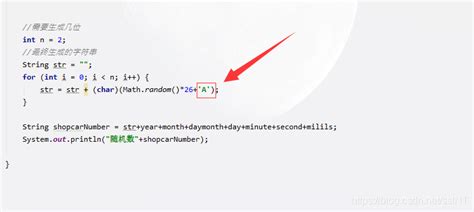随机的英文
Title: Exploring the World of Random English Programming
In the realm of programming, randomness isn't just a chaotic element; it's a tool that can be harnessed to create intriguing and diverse applications. Randomness adds a layer of unpredictability and creativity to programming projects, often leading to fascinating outcomes. One such fascinating concept is "Random English Programming," where English words are randomly combined to form code structures. Let's delve into this intriguing domain and explore its potential applications, challenges, and best practices.
Understanding Random English Programming
Random English Programming involves generating code by randomly selecting English words and combining them to form syntactically valid programming constructs. These constructs may include variable names, function definitions, conditionals, loops, and more. The randomness introduces an element of surprise, making the resulting code both unique and unpredictable.
Applications
1.
Creative Coding
: Random English Programming can be used as a tool for creative exploration in coding. By generating code structures randomly, developers can stumble upon novel solutions and unconventional approaches to programming challenges.
2.
Artificial Intelligence
: In AI research, generating code snippets or program structures randomly can be a part of evolutionary algorithms or reinforcement learning techniques. This approach allows AI systems to explore a broader range of possibilities when searching for optimal solutions.3.
Education
: Random English Programming can serve as an educational tool to introduce programming concepts in a fun and engaging manner. Students can experiment with randomly generated code to understand how different programming constructs interact with each other.4.
Testing and Fuzzing
: In software testing, generating random code snippets can help uncover bugs and vulnerabilities that may not be detected through traditional testing methods. This technique, known as "fuzzing," involves feeding randomly generated inputs into programs to identify unexpected behaviors.Challenges
1.
Syntax Validity
: Ensuring that randomly generated code snippets are syntactically valid can be challenging. Without proper validation mechanisms, the generated code may contain syntax errors, making it unusable.2.
Semantic Meaning
: While random code generation can produce syntactically correct code, ensuring that the code has semantic meaning and performs desired actions is more complex. Randomly combining words may result in nonsensical or meaningless code.3.
Debugging and Maintenance
: Debugging randomly generated code can be daunting, especially when the codebase is large and complex. Additionally, maintaining randomly generated code poses challenges, as changes made by developers may disrupt the randomness and coherence of the code.Best Practices
1.
Syntax Validation
: Implement robust syntax validation mechanisms to ensure that randomly generated code is syntactically correct. This may involve using parser libraries or languagespecific tools for syntax checking.2.
Semantic Analysis
: Incorporate semantic analysis techniques to evaluate the meaning and functionality of randomly generated code. This step helps filter out nonsensical or erroneous code constructs.3.
Iterative Refinement
: Instead of generating code entirely at random, use iterative refinement techniques to gradually construct code structures. This approach allows for controlled exploration of the solution space while ensuring coherence and relevance in the generated code.4.
Testing and Validation
: Implement comprehensive testing and validation procedures to verify the correctness and effectiveness of randomly generated code. Automated testing frameworks can help identify errors and inconsistencies in the codebase.Conclusion
Random English Programming offers a fascinating glimpse into the intersection of language and code generation. While it presents unique challenges, such as syntax validity and semantic coherence, it also opens up new avenues for creative exploration and problemsolving. By incorporating best practices and leveraging advances in syntax validation and semantic analysis, developers can harness the potential of random code generation to drive innovation in programming. As we continue to explore the possibilities of Random English Programming, we may uncover hidden gems and unexpected breakthroughs in the world of software development.









